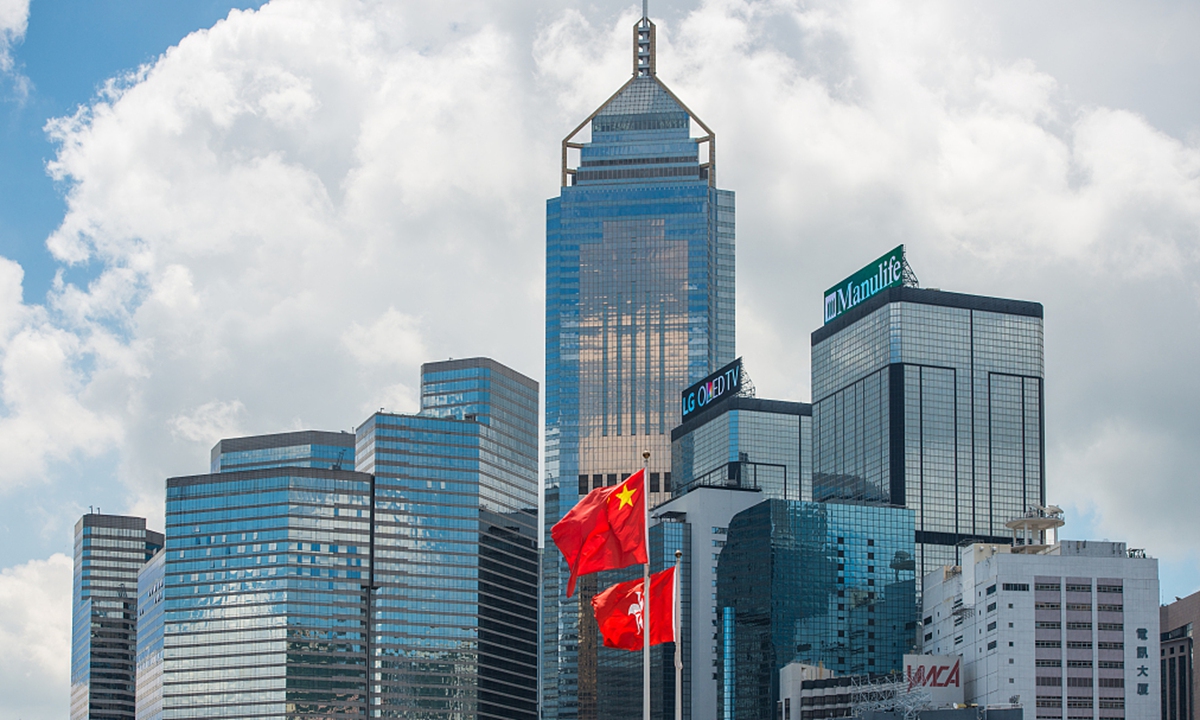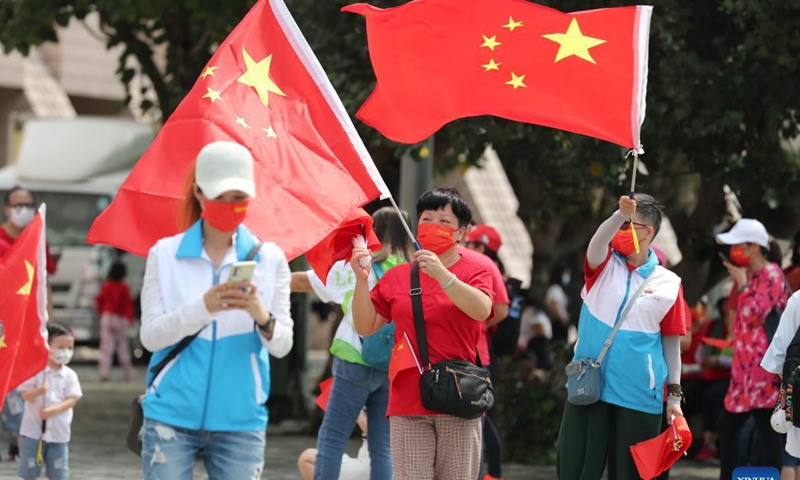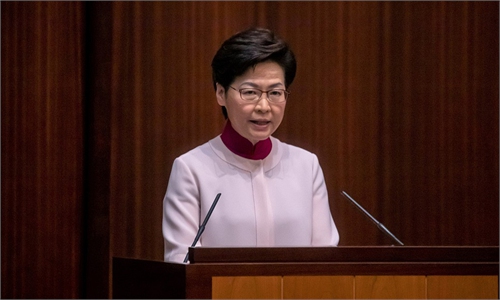HK at best of its time to embrace Northern Metropolis plan: experts
Visionary metropolis expected to house 2.5 million people, offer 650,000 jobs

Hong Kong File Photo: VCG
In her latest policy address on Wednesday, Chief Executive of Hong Kong Special Administrative Region Carrie Lam unveiled a plan to transform northern Hong Kong into a metropolis covering about 300 square kilometers. Experts noted that it is the best time in Hong Kong for this ambitious plan, which is expected to be a historic opportunity for the city to get back on track.
According to analysts, the Northern Metropolis plan will be a historic opportunity for Hong Kong to integrate the city into national development and solve the housing problem in the city.
The planned Northern Metropolis, which is neighboring Shenzhen, the city dubbed as China's Silicon Valley in South China's Guangdong Province, is expected to bring major strategic change for Hong Kong's future development.
With a planned population of 2.5 million, the Northern Metropolis will include Yuen Long District and North District administration areas, which will become the most important area in Hong Kong that facilitates the city's development integration with Shenzhen and connection with the Guangdong-Hong Kong-Macao Greater Bay Area, Lam said as she delivered the policy address on Wednesday.
The Northern Metropolis will serve as an innovative complement to the existing Harbour Metropolis and be developed as an international innovation and technology hub which is anticipated to offer 650,000 jobs. The area will also form a "Twin Cities, Three Circles" pattern with Shenzhen, which is beneficial to the two municipal governments to jointly promote economic and other cooperation.
Analysts noted that the plan shows the local authorities have escaped the long-existing "Victoria Harbour Myth" to always revolve the city around the harbor, and that Hong Kong will be able to integrate into the overall development of the country and consolidate its status as an international center at the same time, and create more jobs while developing living areas.
The concept of "Twin Cities, Three Circles" will help Hong Kong and Shenzhen enhance their cooperation in economy, infrastructure, innovation and technology, livelihoods and environment, which will yield more dividends than "1+1>2," and also help Hong Kong find new momentum for growth, Liang Haiming, dean of the Belt and Road Institute at Hainan University, told the Global Times on Thursday.
Liang suggested that to further facilitate cooperation between the twin cities, the HKSAR government needs to establish higher level working groups in connection with the provincial government of Guangdong and Shenzhen city government, designating special personnel to work on the port and economic affairs.
Housing conditions have always been an important issue for Hong Kong, and the determination of the Hong Kong SAR government to improve this livelihood issue can also be seen in Lam's address.

Citizens wave China's national flag in Tsim Sha Tsui, south China's Hong Kong, Oct. 1, 2021. Hong Kong on Friday saw various activities in celebration of the National Day, both official and grassroots ones, including flag-raising ceremonies and bus parades. (Xinhua)
During the National Day holidays, officials at the Liaison Office of the Central People's Government in the HKSAR visited some grassroots communities in Hong Kong including the notoriously crowded "cage houses."
During the visit, Luo Huining, head of the Liaison Office said that the central government is concerned about Hong Kong's housing problems and stressed that Hong Kong's development must be people-centered, which appears to have been a focus of Lam's policy address.
"There are major breakthroughs in this policy address, showing the courage of authorities in handling long-term issues on housing and livelihoods," Liang said, noting that how to solve the imbalance of land supplies and slow process of real estate construction are included in the report.
Louis Chen, member of the All-China Youth Federation and member of the Election Committee of Hong Kong, pointed out that the main focus of Lam's policy address is to provide "an upstream channel" for Hong Kong youths.
"The planning and construction of the Northern Metropolis is part of Hong Kong's response to the country's 14th Five-Year Plan that is supporting Hong Kong to become an international innovation and technology hub," Chen told the Global Times.
The policy address on Wednesday titled "Building a Bright Future Together" was Lam's fifth as HKSAR Chief Executive and her last of her term of office. The principle of "One Country, Two Systems" and the idea of incorporating Hong Kong into the country's development pervaded the speech.
The Northern Metropolis proposition also came during a National Day holiday when patriotic atmosphere prevailed in the city. The whole city was celebrating the birthday of the motherland, with many national flags hanging outside apartment windows, and the atmosphere was completely different from the fear that plunged the city into riots two years ago.
"It is now the best time to make such proposition as Hong Kong is at the best of its time, as the 'One Country, Two Systems' has been correctly implemented," said Lam.
Observers pointed out that, as Lam said, this is exactly the right time for Hong Kong to come up with an ambitious new plan.
"Hong Kong is indeed at its best time in history given a stable political environment, and the HKSAR government is not limited in its own affairs but sharing a broader mentality of how to integrate into the country's overall development," Lau Siu-kai, the vice-president of the Chinese Association of Hong Kong and Macao Studies, told the Global Times on Thursday.
Meanwhile, the opposition camp has lost their support over the past year under the implementation of the national security law for Hong Kong and electoral reform, Lau said, noting that that many people in Hong Kong who have crisis awareness are willing to seek a new path for development.
For Hong Kong, the city is at its best time, and as long as Hong Kong makes good use of the country's policies, it will certainly promote the city's prosperity and provide a broader platform for Hong Kong people to develop, said Liang Haiming.




